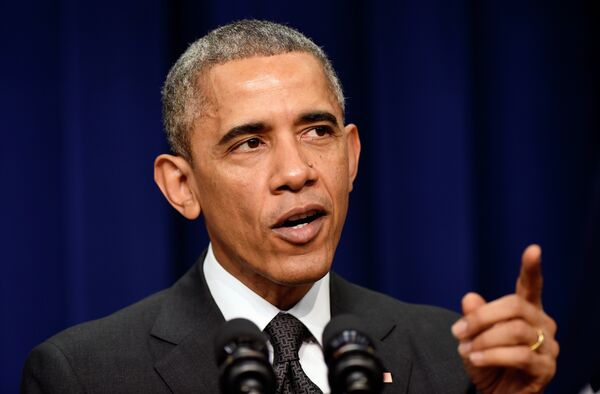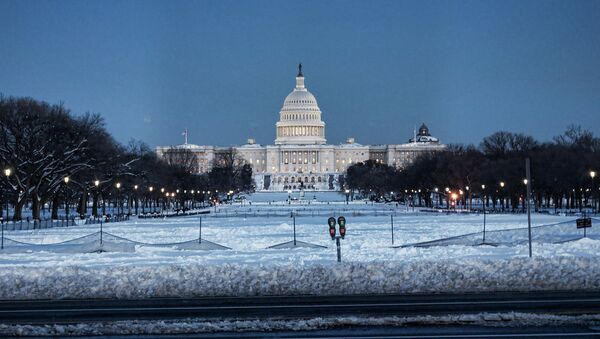— Cory Bennett (@Cory_Bennett) January 8, 2015
In an interview with Sputnik, Ruppersberger’s office confirmed the plan.
Intended to protect cyberspace from malicious attacks, the bill would allow the sharing of information between the U.S. government and private companies. Originally introduced by Representative Mike Rogers, the legislation was advertised as something that should prevent a cyber 9/11, which otherwise would be imminent, according to high-rankedofficials from the Department of Homeland Security and the FBI.
— Amie Stepanovich (@astepanovich) January 8, 2015
However, after drafts of the bill were made public, privacy advocates launched a massive campaign urging to stop the legislation from becoming law. According to critics, the bill would be a serious setback for online liberties and would jeopardize the privacy of millions of internet users.

The bill was beaten back last year after thousands of individuals petitioned to limit the government’s domestic spying apparatus.
In the past, the NSA has expressed strong support for the bill, as it would allow it greater access to private information without a warrant.
As Access, a digital rights group, notes, CISPA represents a lack of respect for individual privacy, and explains that:
1: The bill allows virtually any company to “use cybersecurity systems to identify and obtain cyber threat information." The Electronic Frontier Foundation notes that "cybersecurity systems" could be interpreted to mean "monitoring email, filtering content, or even blocking acces to sites." CISPA would allow these kind of privacy violations for the purpose of uncovering cyber threats.
2: Cyber threats are so broadly defined as to possibly include misappropriation of intellectual property. Given the confusion surrounding intellectual property rights, especially online, granting private companies the power to violate personal privacy could lead to personal copyright piracy.
3: CISPA does little to protect our privacy or civil liberties. While other bills before congress, like the Lieberman-Feinstein and Lungren bill, have made an effort to redact personal information from mass data collection, CISPA does not.

4: CISPA threatens free expression and the press. The bill could violate First Amendment protections given to journalists in protecting their sources. Access points out that "another law protecting 'government information' from theft is more likely to target Wikileaks than any foreign government's malicious hacker."
5: CISPA is not accountable to civilian or political oversight. The bill would exempt all cyber threat information from FOIA requests. The bill would also grant oversight to military and intelligence agencies with histories being secretive and not transparent.
President Obama may have hinted at a White House push to reinvigorate CISPA.
"[We had] a cyber agency team look at everything we could do at the government level to prevent these kinds of attacks," he said in his end-of-year press conference.




